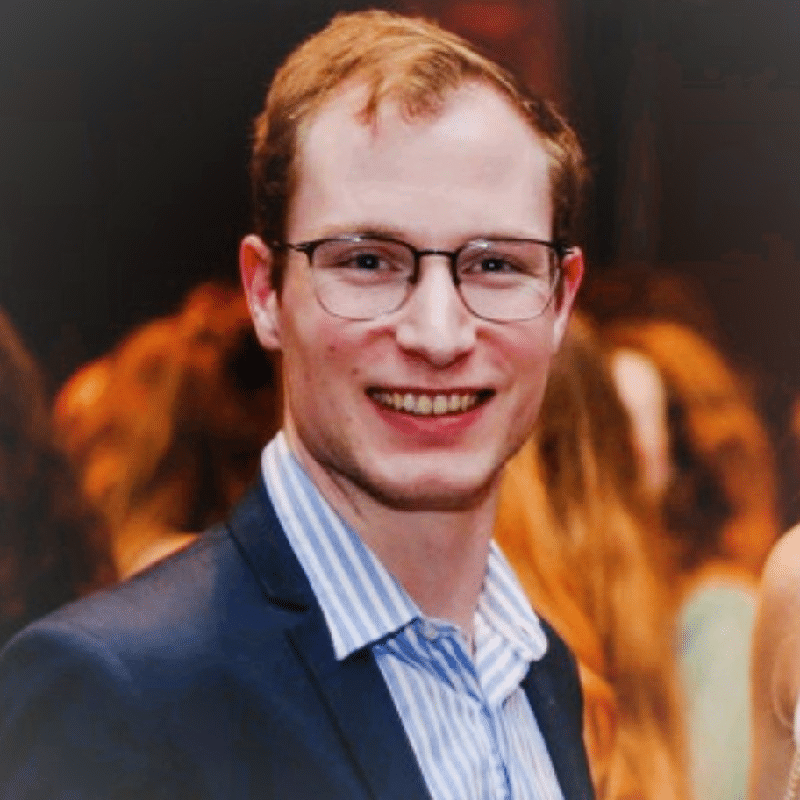
UK Summer School , 2011
Neil McCallum
Senior Translation Project Manager
Neil took part in a Sutton Trust Summer School in 2011 and went on to study languages at university. Having studied and...Tell us a little bit about your background…
“I come from Eastbourne, down in Sussex, on the South Coast. Growing up I went to the local schools there and actually did my GCSEs at a performing arts school despite not being a performing arts kind of person, which was an interesting experience! I was always interested in and then got very good GCSEs in the sciences, so moved to a college to do my A-levels in Physics, Maths and Geology. Where I lived wasn’t really a university town, so I grew up not knowing what a university was or much about it, especially without having parents or grandparents who had attended one.”
“I went to a big college and at the end of Year 12 they held an activities week, with one of the options being to participate in an extracurricular scheme. The Sutton Trust was mentioned and whilst my college didn’t usually get people onto it, I met the criteria and thought, why not go for it?
I was accepted onto the engineering scheme at Bristol, which meant I got the university experience crammed into one week, which was just exceptional! I was able to live in halls of residence, see the labs and sport facilities, and feel the academics’ enthusiasm for their subject. That was particularly infectious, especially because I was young and still considering what I wanted to do. It was critical in my university decision-making process.
It gave me an enthusiasm for higher education. Before this I wondered whether university was for me or if I was intelligent enough to do it, but the programme got rid of all those doubts and made me realise university wasn’t beyond my reach, it was something I could attain, I thought “I can do it”.
“I used the Sutton Trust Summer School in my application and it really provided a gateway for me to progress into my Geology degree at Bristol, which I thoroughly enjoyed. So in my final year, when I met my current boss and was offered a sponsored PhD, funded by a Bristol alum, I accepted.
My PhD began a few years after the Fukushima nuclear disaster, the world’s most recent severe nuclear accident. We spent a lot of time looking at the accident, what happened, how the land around it was contaminated and how this contamination is moving. Then, towards the end of my PhD, looking at what happened to the reactor and the fall out the disaster generated. I’ve therefore spent a lot of time working out in Fukushima and have a visiting position at Kyoto University, Japan. I completed my PhD in 2018 and won a Springer Scientific prize. My thesis is available to purchase on Amazon and my Mum has it on her bookshelf, which is bizarre!
During my PhD, due to the work done in Fukushima and with the Japanese International Atomic Energy Agency, me and my team became quite respected in the field, meeting with the International Atomic Energy Agency and being invited to give keynote presentations at international conferences on our work. More recently we have been contacted by those working on other nuclear disasters around the world. The Chernobyl disaster is one that everyone is aware of and I now work on the radiation detection side of it, working with technology such as the Boston Dynamic Spot Robot. We also support governments, for example looking into the subsequent Chernobyl wildfires and developing models for radiation transport and environmental mobility.
I’ve gone from not knowing if I had a place at the university to being an academic here with my own students and lectures, as well as supporting on outreach programmes like the Summer School that I myself participated in.”
“I would like to continue in academia, to become a fully-fledged professor, continue to lead my own research group and work with academically able students, from backgrounds like mine and whose ability shines through. I’d also like to continue working with new collaborators globally, to become a world leader in my field and bring in the next generation of scientists and engineers to work on the big challenges we are facing, that are not going away.”
“Believe in yourself that you can do it. Do not second guess yourself, as the biggest risk of failure comes from doubting yourself. Even if no one else you know has achieved what you want to, you can be the first! Some of the brightest, most motivated, hardworking young people I’ve worked with who have the best and most exciting vision are from the most disadvantaged backgrounds. Also, don’t be afraid to ask for help, it is not a sign of weakness but inquisitiveness and motivation. Get out there – you can excel!”
Get in touch to share your story via [email protected]. Browse our library of alumni stories.